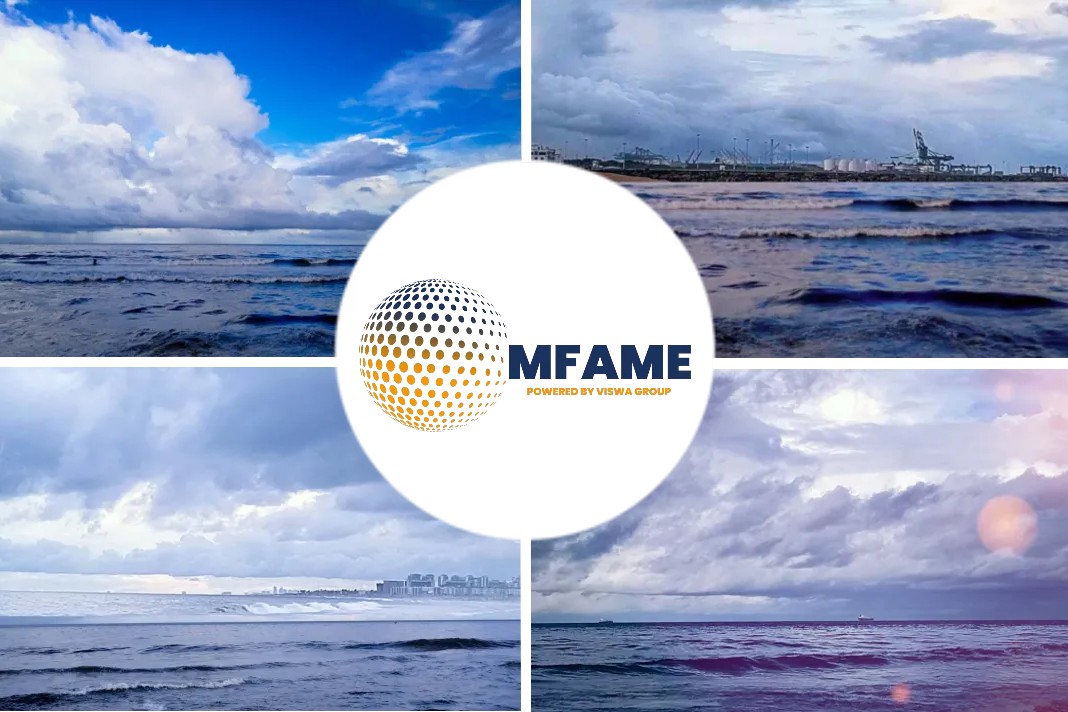- Rashpal Singh Bhatti, Vice President, Maritime & Supply Chain Excellence, BHP detailed how the business case for the vessels works.
Vessel charterer BHP of Australia signed a five-year time charter contract for five LNG fueled “Newcastlemax” huge ore carriers (VLOCs), carrying iron ore between Western Australia and China from 2022, says as an article published in Tank Operator.
In an International Chamber of Shipping webinar on March 10,” Legal, Stakeholder, and Commercial Forces of Change – Lessons for Maritime,” Rashpal Singh Bhatti, Vice President, Maritime & Supply Chain Excellence, BHP, detailed how the business case for the vessels works.
BHP
Formerly known as BHP Billiton, BHP portrays itself as a “world-leading resources corporation.” It is one of the world’s largest bulk charterers. Mr. Bhatti is effectively the head of chartering and is in charge of BHP’s marine freight needs. With about 185,000 dwt, a maximum beam of 50 meters, and a maximum length of 300 meters, the Newcastlemax is the largest bulk carrier that can enter the port of Newcastle, Australia.
Project development
Work on the project began in 2018. At the time, companies in the shipping’ ecosystem’, including banks, owners, managers, and class, were thinking about LNG fuel.
The first question was whether it could be done from an engineering perspective. To answer this, “we took an ecosystem approach,” he explained. “As BHP, we don’t have all the expertise in this area. We know what we want, but we’re not specialist LNG players, shipbuilders. We have to bring together many parts of the ecosystem, understand we’re not the experts, and take a humble approach.”
“We brought together class, shipyards, charterers, financiers. We said we’ll put together a ‘Green Corridor Joint Industry Project’ to find out, can this be technically done.”
And the second question was what economics would look like. The only way was to see what prices would actually be available from the market, both for vessels and for fuel.
BHP released a tender for a carrier for the vessels in July 2019. The ship operations contract went to Eastern Pacific Shipping (EPS). Mr. Bhatti said EPS “offered a competitive bid and an efficient vessel design with superior fuel efficiency and GHG emissions reductions.”
Is LNG the future?
Mr. Bhatti was asked whether he was confident that the LNG fueled ships would be viable for the typical lifetime of a ship, 20-30 years, when we may have zero carbon fuels coming onto the market by then.
“I think LNG will form part of the mix; what percent of the mix, I don’t know, I don’t think anybody knows,” he replied. “I don’t agree with the terminology ‘transition fuel.”
What charterers should do
Mr. Bhatti was asked whether charterers like BHP would be willing to pay more than the minimum required for decarbonized fuels.
He replied that he believes the environmental incentive should be enough to make it worthwhile to invest in decarbonization. “My view is, what more incentives do organizations, government, and supply chains need than we have already than to give the social endowment to people who come after us. I don’t think a bigger incentive is required.”
“Investors are looking for organizations that are taking a front-running approach to emissions reduction.”
Market drivers
In terms of broader market factors, “A carbon levy would be the right thing to do, as long as the governance of funds [means that they] would find themselves back into the right hands, [such as] organizations that are in R+D. We feel any kind of carbon levy needs to be well regulated and fair”. Any carbon levy, we believe, should be well-regulated and equitable, Mr. Bhatti said. Vessel rating schemes, such as RightShip, where Mr. Bhatti serves as chairman, are another market driver. BHP owns a portion of it. However, to operate as an effective market driver, he believes that uniform methods for measuring ship energy efficiency will be required.
Danish Ship Finance
Christopher Rex, Head of Innovation & Research at Danish Ship Finance, also spoke at the ICS webinar about how decarbonization could lead to a new financial model for owning ships. Today, many ship-owning business strategies are predicated on making a profit by selling a vessel for more than you paid for it. The cash flow generated by simply operating a ship is frequently insufficient to justify the investment. “The big win is when we look at the next generation of vessels,” he said.
Did you subscribe to our daily newsletter?
It’s Free! Click here to Subscribe!
Source: Tank Operator






















